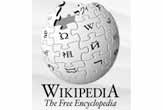Wikipedia: How Accurate Is It?

Wikipedia may represent the world's most popular online encyclopedia, but its crowd-sourced approach presents some pitfalls for the unwary. A recent cautionary tale comes from baseball fans vandalizing the wiki pages of Yankees and Phillies players during the latest World Series matchup, as first noted by MyFoxPhilly.com.
Perhaps few Wikipedia readers would believe the obvious slurs and insults posted on player pages, and editors work quickly to remove the misinformation. But the incident once again highlights how easily any anonymous person can edit the information on the free, online encyclopedia — although Wikipedia plans to restrict anonymous edits for biographical entries about living people by the end of this year. "Flagged revisions" will still allow anonymous users to submit changes, except that such submissions will require editor approval before going live.
The change would help eliminate incidents such as the World Series Wikipedia vandalism, as well as an earlier Wikipedia hoax that fooled UK, Indian and Australian journalists. An Irish college student intentionally planted a fake quote in Wikipedia that he attributed to French composer Maurice Jarre, shortly after Jarre's death in May. That tricked a number of newspapers into including the quote in their obituaries.
Missing or wrong information on Wikipedia could have more serious consequences.
A survey this year found that up to 50 percent of physicians consult Wikipedia for medical information, despite a 2008 study that found certain drug pages miss vital health information about side effects. Wikipedia may also unintentionally encourage lazy or gullible students who cite it as a primary source in their papers, which leads to perennial complaints by teachers and professors.
Still, misuse of Wikipedia by readers and contributors does not diminish the encyclopedia's huge accomplishments as a crowd-sourcing experiment. Dartmouth researchers found that much of Wikipedia's success depends not only upon registered, dedicated users, but also relies upon many anonymous "Good Samaritans" who might contribute just once.
A 2005 study by the journal Nature found Wikipedia roughly as accurate as the Encyclopedia Britannica, and a 2008 study in the journal Reference Services Review pegged Wikipedia's accuracy rate at 80 percent compared to 95-96 percent among other sources — not bad for a free, crowd-sourced encyclopedia.
Sign up for the Live Science daily newsletter now
Get the world’s most fascinating discoveries delivered straight to your inbox.
Well-sourced articles written according to Wikipedia guidelines should have citations listed at the bottom of each page, with links to other information sources. This means that savvy readers can use Wikipedia as an information hub to follow the link trail to more expert or authoritative websites, and students can likewise find useful primary sources through Wikipedia.
But teacher, journalists and other professional researchers offer this advice: Don't rely exclusively on Wikipedia for crucial information used to make a health decision, write a story for publication, or to pad that next midterm paper.
This article was provided by TopTenREVIEWS.










